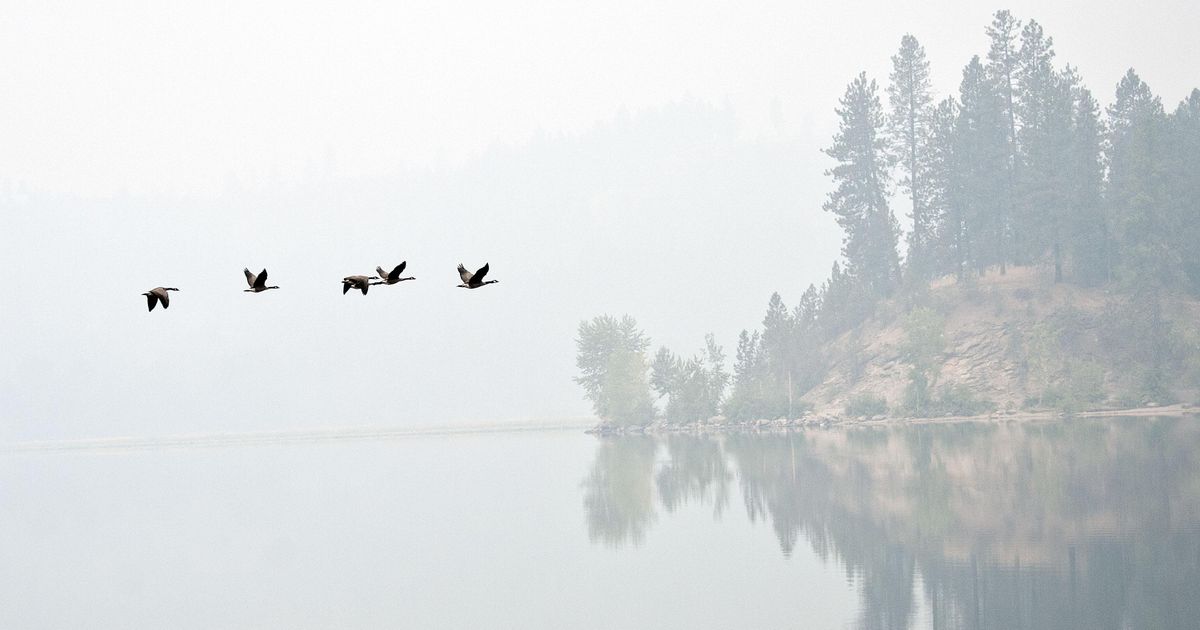Little refuge for wildlife as smoke lingers over region

Wild critters can’t heed health agency warnings to take refuge indoors from the pall of wildfire smoke smothering the West.
They’re stuck outside, coping with bad air quality much as they deal with weather extremes throughout the year.
“Wildlife appears to be hunkering down a little more,” said Madonna Luers, Washington Fish and Wildlife Department spokeswoman in Spokane. “Our biologists can’t say for sure whether that’s because of hot weather or a combination of the smoke and heat, but birds have appeared to be less active.”
It’s natural for wildlife in this region to reduce activity in hot weather, she said.
But wildlife still must sustain themselves, even in dangerously smoky conditions.
Hummingbirds have showed no apparent slowdown this week at his feeders, said Doug Pineo, a Spokane falconer. “Birds are very sensitive to pollutants, but they also have to eat,” he said.
At Turnbull National Wildlife Refuge, “We haven’t seen anything out of the ordinary here,” said refuge wildlife biologist Mike Rule. “Birds are migrating through in the usual numbers and no unusual behaviors on the part of moose, deer or elk have been observed.”
Becky West at the World Center for Birds of Prey in Boise said she hasn’t observed smoke impacting the live hawks, owls and falcons they have on display outside at the facility.
“If we noticed any distress or panting we’d bring them inside,” she said. “Of course, they’re not out there hunting.”
Wildlife generally will do their best to move into better conditions or they will simply reduce movements to minimize exposure, wildlife experts say, noting that fleeing exposes them to other dangers.
Despite the well-established links between air pollution and human health, vegetation and aquatic ecosystems, less attention has been paid to the potential impact of atmospheric gases on birds and wildlife.
However, according to one survey, “Avian responses to air pollution include respiratory distress and illness, increased detoxification effort, elevated stress levels, immunosuppression, behavioral changes, and impaired reproductive success.” The study was conducted by two University of Wisconsin-Madison researchers after a review of other studies conducted in the past 60 years.
“Exposure to air pollution may furthermore reduce population density, species diversity, and species richness in bird communities,” according to study authors Olivia Sanderfood and Tracey Holloway.
But the impacts of smoke on wildlife have not been quantified, experts say.
“Fire was such a prevalent disturbance factor through evolutionary history that I can’t believe that smoke would have any long-term deleterious effects,” said Rule, the Turnbull biologist. “I could be wrong.”
“I’m more concerned with the immediate loss of bird habitat,” said Pineo, who’s retired from a career with the Washington Department of Ecology.
“This year’s young have been raised and they’re gone from their aeries, but a lot of important habitat for goshawks and other forest birds has been lost this season,” he said.